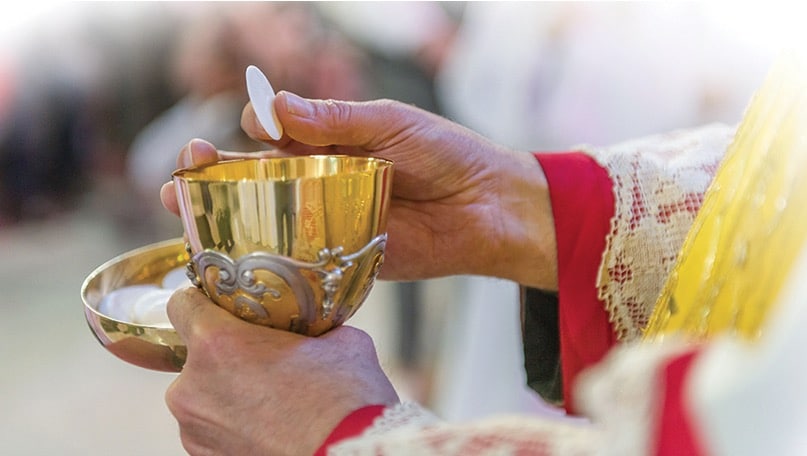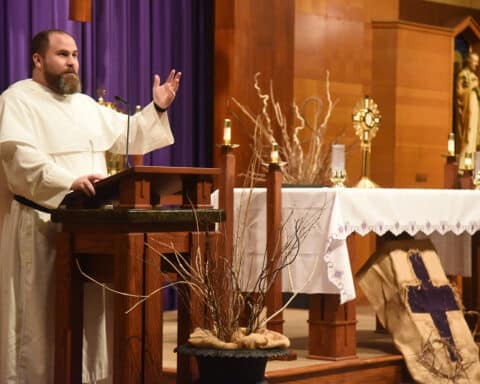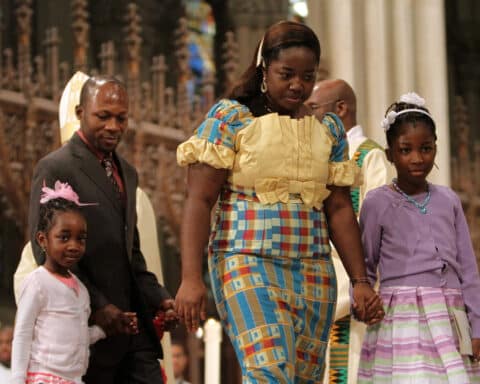
— Name withheld, Alabama
Answer: We use the word “body” for several reasons. First of all, Jesus himself used the word “body” (soma in Greek) when giving the Eucharist for the first time: “Take and eat, this is my body (soma).” Hence we, in conformity to Christ, use this way of speaking of the Eucharist.
Secondly, both the English word “body” and the Greek word “soma” can refer strictly to the physical dimension of a person, or more broadly to the whole person. In English, I can say, “My arm is part of my body,” referring to my physical dimension. However, I might also say, “I am somebody,” which refers not only to my physicality but to my whole self. We can also do this in the plural, as when we speak of the “body of believers,” or the “body-politic.” Here we do not refer to a physical body, but rather to the sum total.
Thus, we do not exclude any dimension of Christ by referring to his “body,” as if we were only speaking of his flesh, since “body” here refers to the whole Christ. It pertains to a living human body (and Jesus is quite alive) to have not only flesh, but also blood and soul together. We receive also his divine nature with his body, since it is untied to him hypostatically.
While we do speak of what is in the chalice more specifically as the Blood of Christ, this is only to distinguish its species (i.e. what we perceive) from the host. However, Jesus is alive and glorified, and his body, blood, soul and divinity are together. Hence, even in the smallest drop of Precious Blood, the whole Christ is received.
Friday penance
Question: The Church abolished most of the norms regulating “meatless Fridays” and declared Fridays outside of Lent merely as “a day of penance.” Does the penance have to be performed on Friday and are there any parameters to observe?
— Peter Stein, Roseville, CA
Answer: Generally, penance should be performed on Friday, though exceptions can be made due to other obligations, such as attending family or civic celebrations. Strictly speaking, one can work out deferrals or dispensations in regard to Friday observances with their pastor, but practically, most simply work through this on their own.
The thinking back in the 1970s when “meatless Fridays” were substituted with a day of penance was to offer other observances to people on Friday. Simply giving up meat and going to Red Lobster was hardly a penance for most, though the law was being observed, technically. Therefore, it was thought to permit any range of penances, from giving up other things, to taking on special prayers or works of charity.
But as your question implies, it is difficult to follow an uncertain trumpet, and many Catholics simply drifted from any Friday observance with such wide-open parameters. Psychologically, it would seem that having a clear focus is necessary to assist in such practices.
Hence, some bishops’ conferences are going back to meatless Fridays. Here in America, that is not the case, though there is some ongoing discussion.
For now, you are largely free to determine how to observe Friday, presuming it has a penitential character. It could be to abstain from something good, or to take on some pious or charitable work.





